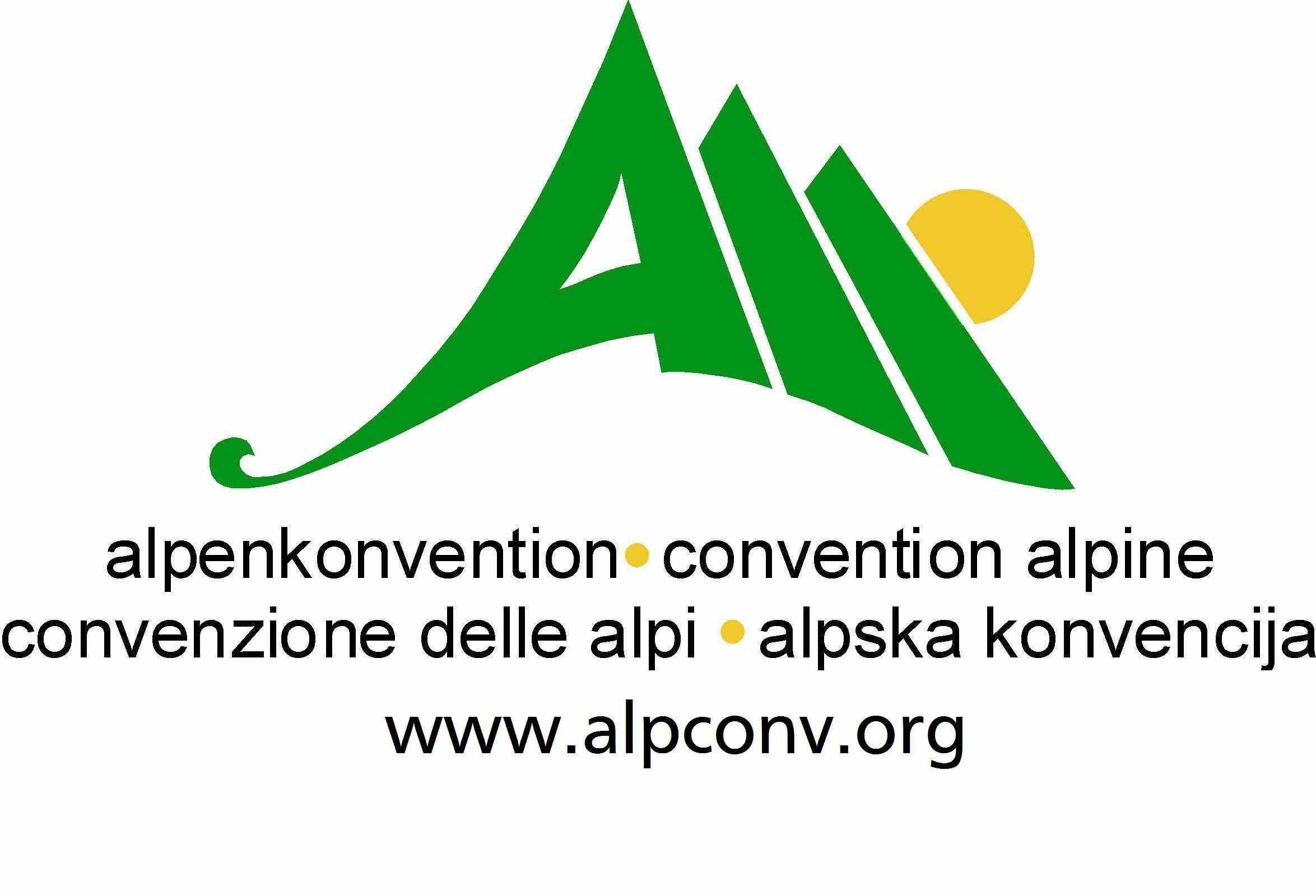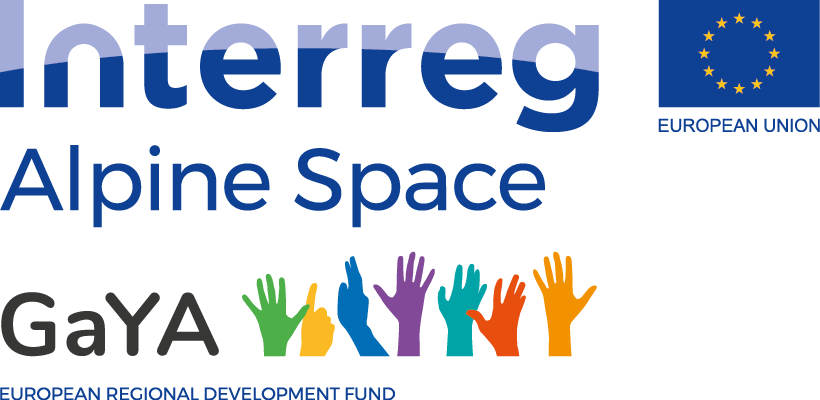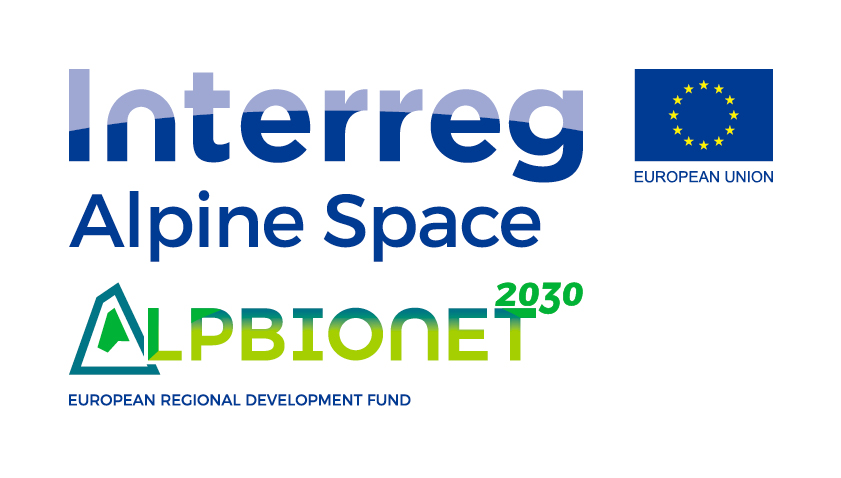The regional natural parks are the perfect location for outdoors activities: wonderful landscapes, extraordinary natural surroundings, several walking trails and more besides. However, people who engage in outdoor sports in this area need to consider nature and the indigenous wildlife and act responsibly to preserve it. To raise awareness in outdoor participants, the Regional Natural Parks in Auvergne- Rhône Alpes (France) have developed 8 videos.
The videos, of 1’ 30 and designed with the motion design technique, focus on specific topics: trekking in forests, mountain bike activities, free flight, canyoning, snowshoes activities.
The initiative has been coordinated by the Network of the Regional Natural parks of Auvergne-Rhône- Alpes and supported by the Auvergne-Rhone-Alpes region in partnership with several partners including ALPARC.
ALPARC is working on awareness raising campaigns on outdoor activities in the frame of the WeWild project. This winter the network officially launched the international cooperation initiative BePart of the Mountain aiming at facilitating the exchange of good practices, developing common awareness-raising tools and implementing joint communication action to initiate behavioural change in outdoor participants.
One of the latest items of news from the Prealpi Giulie Natural Park concerns the foundation of a Youth Advisory Board. As of the day of its foundation there are 13 members, aged 16-30, some of them having had experience of the Junior Ranger program. The board acts as a forum with a regulation approved by the board of the park.
The primary objective is integrating the needs and wishes of the younger generation in order to keep the six municipalities active. In this direction, spokesperson Verena Ambrosino explains: “we want to engage in transboundary connection, in cooperation with the Triglav National park and the Bayerischer Wald Nationalpark, in order to have common projects with other young people and keep our territory alive.”
The first project the youth board will manage is the 4TH edition of Youth at the Top. Hence, it will be the youth representatives themselves who will plan activities for other youngsters to spend together one day and one night in the mountains.
In the next months the park board will also allocate a budget to the Youth Advisory Board which will give them the financial means to get initiatives started.
The 23rd Memorial Danilo Re event took place at the Berchtesgaden National park from 25th to 28th January 2018, in the frame of the celebration of the park’s 40th anniversary.
A combination of excellent weather conditions and outstanding involvement by the Berchtesgaden national park staff made this event unforgettable!
Alpine rangers and staff of the protected areas from Austria, France, Germany, Italy, Slovenia and even Slovakia competed in four categories: mountaineering ski, giant slalom, shooting and cross-country, with a total of 46 teams: a record number of participants for the Danilo Re Memorial .
After the traditional parade of the teams, Berchtesgaden National Park Director Dr. Roland Baier, Bavarian Ministry of State for Environment and Consumer Protection, Deputy Minister Dr. Christian Barth, District Administrator of Berchtesgadener Land Georg Grabner, Ramsau Mayor Herbert Gschossmann, ALPARC President Dr. Peter Oggier and Mauro Fissore, Member of the steering committee warmly welcomed the teams and their supporters.
The overall victories for men & mixed teams went to Parco Nazionale Gran Paradiso (IT) followed by Nationalpark Hohe Tauern Salzburg (AT) and Nationalpark Berchtesgaden (DE).
Regarding the ladies’ teams the first place went to Nationalpark Hohe Tauern Tirol (AT), the second to Parco Regionale dell'Adamello (IT) and the third to Nationalpark Berchtesgaden (DE).
In addition to the competition, Alpine and transnational friendship was celebrated and participants enjoyed the traditional Bavarian music and dances, Alpine food and Mauro Fissore’s band who played without let-up until 3.30am... what a performance!
Go to the Danilo Re Facebook page to see all the photos of the event
See the detailed results by downloading the document below.
The video clip reflecting the atmosphere of the 3rd edition of Youth at Top has just been released !
Are you curious? Please have a look and discover the experiences lived by our young participants and their guides.
The third edition of “Youth at the Top” took place on July 11th and July 12th in six Alpine countries and three countries of the Carpathians.This time, the international youth event hosted 48 events which involved numerous different day and night activities.
Hence, more than 500 enthusiastic young people from Austria, France, Germany, Italy, Slovenia, Switzerland, Poland, Romania and Slovakia set out on a great adventure to discover the treasures of the mountain environment.
For more information about the 2017 edition, please consult the Youth at the Top website.
We are looking forward to seeing you on the 12th of July 2018 !
This international initiative is coordinated by ALPARC and supported by the German Ministry for the Environment and the Principality of Monaco.


In June 2017 a core group of hikers departed from Vienna and have been travelling through several destinations all over the Alps on a journey of 120 days that will lead them to Nice at the end of September.
Whatsalp is the continuation of TransALPedes, a journalistic-political project launched in 1992. Back then, a core group of eight specialists and media workers, accompanied by a group of interested parties, crossed the Alpine region in four months. Thanks to more than 100 encounters TransALPedes built up an international network of 800 people with committed individuals, groups and authorities engaged in the protection and long-term development of the Alpine region.
In 2017, all along the hike the core group has already had the opportunity to set up numerous site meetings with interested individuals, groups and institutions, shedding light on and discussing the changes in the landscapes and societies across the Alps that have taken place over time. The group has also been in touch and had some exchanges with the youngsters of the “Whatsalp Youth” project led by CIPRA. As the Whatsalp hike has largely followed the route that the TransALPedes Group walked 25 years ago, all the meetings have been a great opportunity to make relevant comparisons and reflect over the traces left by humans and natural events in the past as well as to draw attention to future perspectives.
Whatsalp hike has been reported through short texts, films and photos on a blog where the group has been communicating on a daily basis about what they have seen, heard and experienced.
For further information about the roadmap of previous and future meetings, the route of the hike or to register for the last stages and join the core group, please visit the website of the project.
Give Youth a Voice in the Alps! GaYA Encourages Youth Participation in Local - Urban and Rural - Politics
How can young people become more involved in local political processes? How can local politicians, their municipalities and the young themselves benefit from increased inclusion? These questions are central to the EU Interreg Alpine Space GaYA project (Governance and Youth in the Alps), and especially to its pilot stage that started at the beginning of September. As project partner and coordinator of the pilot phase in 2018, ALPARC also works closely with three Nature park regions in France.
The first stage of the project ended with the “Youth Participation in Political Decisions in Alpine Regions” workshop on 29 June in Bozen/Bolzano. The aim of this first stage was to analyse democratic and participatory processes across the Alps with particular focus on youth, and to highlight good practices. At the workshop, the partners presented these results to numerous representatives from municipalities and the political sphere from all over the Alpine space (report available, see below). The GaYA project teaser video-clip, which was designed by the ALPARC coordination unit with an external video maker, encourages youth participation in local politics by highlighting some of the existing examples (see below).
Over the next months, the pilot stage will start in the different GaYA pilot areas. Based on local needs and challenges, the aim is to test innovative approaches to mobilise and include youth in political processes in various fields: from youth-related topics such as education and culture to wider regional challenges such as biodiversity and climate change. Accompanied by the GaYA partnership and supported by external experts in the fields of citizen participation and democratic innovation, each pilot area will develop a participatory action plan and should implement at least one specific action in 2018. The experiences and lessons from this experimental approach will help the consortium to develop a toolkit and recommendations for policy-making in the field of youth participation in local politics.
GaYA runs from November 2016 to February 2019 and is co-financed by the European Regional Development Fund through the Interreg Alpine Space programme (Total budget: 1,092,748 € - 928,836€ ERDF grant). ALPARC is work package leader in the pilot stage (End 2017-2018).

For further information
Have a look at the GaYA comparative report (all Alpine languages): EN DE FR IT SI
Watch the GaYA teaser video-clip available in (all Alpine languages): EN DE FR IT SI
To keep yourself updated, please visit: www.alpine-space.eu/projects/gaya
ALPBIONET2030 proposes a first overview of mediation and mitigation strategies for mountain areas
As a first result of the ALPBIONET2030 project, a report on the state of the art of current mitigation and mediation strategies in mountain areas is available. The study, led by Eurac Research, presents a collection of human-nature conflict case studies and mitigation strategies used in the Alps and in other mountain areas with indications on the transferability of results.
Human-wildlife interactions have always been a significant feature of mountain areas. In the last decades, conservation policies, demographic tendencies, ecological and topographic factors have together resulted in an intensification of this phenomenon in the Alps. These interactions of various kinds can have several negative impacts, both on human activities and on biodiversity conservation. Therefore, there is an absolute need to manage them efficiently from a social and ecological point of view in order to enhance cohabitation in a necessarily shared space.
Wildlife management has traditionally focused on reducing damages caused by animals on human activities, and vice versa. However, there is increasing acknowledgment among specialists that the social dimension of human-wildlife conflicts should constantly be taken into account to manage conflicts.
This work presents a sample of existing mitigation and conflict resolution approaches in mountain areas. It intends to emphasize the necessity to combine multi- and inter-disciplinary methods in order to reach a qualitative and stable level of human-nature coexistence that would enter into the scheme of a well-established ecological connectivity management throughout Alpine areas.
Public response to wildlife presence is namely considered as a prominent factor in the intensity of a conflict and an important area of work that is to be addressed through mediation approaches.
The present report also suggests that this social and recently considered component of the conflict could be the cornerstone for making the so-called conflict an opportunity to stimulate regional development in the Alps. Turning intense human reactions to wildlife presence into positive actions such as ecotourism development based on wildlife presence would be an example of this. For this reason, it would be necessary to first revise our ambition of “conflict resolution” and focus efforts on optimizing the management of human-wildlife interaction.
ALPBIONET2030 runs from November 2016 to December 2019 and is co-financed by the European Regional Development Fund through the Interreg Alpine Space programme (Total budget: 2,637,285 € - 2,241,693 € ERDF grant). ALPARC is lead partner in this project.

MEMORIAL Danilo Re
The 23rd Edition of the “Danilo Re Memorial” will take place January 25th to 28th 2018 in Berchtesgaden National Park (DE) which at the same time is celebrating its 40th anniversary.
Happy anniversary Berchtesgaden National Park !
ALPARC General Assembly 2018
As usual the General Assembly of ALPARC will meet during the Danilo Re Memorial, on January 26th, 2018. All the ALPARC members are kindly invited to participate.
For further information, please check the Memorial Danilo Re website
During the last ALPARC council meeting on June 29th-30th, Dr. Peter Oggier, Director of the Pfyn-Finges Nature Park was elected as the new Alparc president. He succeeds Dr. Michael Vogel, Director of the Berchtesgaden National Park who, is retiring after 14 years of Alparc presidency.
“I am looking forward to playing an active role in the Alparc network, thus facilitating international collaboration for the preservation of the Alpine region in order to enable future generations to enjoy this special living environment”, Oggier stated after his election. Peter Oggier studied Zoology at the Universities of Bern and Basel and has worked and taught in different fields including Ornithology and Wildlife Corridors. Since 2004, he has been Director at the Pfyn Finges Nature Park which he founded on behalf of the municipalities.
Moreover, the council meeting in South Tyrol assigned Dott. Andrea Beltrame, President of the Prealpi Giulie Nature Park, as a new vice president. Andréa Beltrame has been active for almost forty years in the political life of the municipality of Resiutta. Since 2013 the retired entrepreneur has been president of the Prealpi Giulie Nature Park. "I strongly believe in the potential of Alparc as an international network and I am highly interested in further improving its relationship to the national ministries and national park federations."
The new Alparc board is represented by the president Dr. Peter Oggier, the two vice presidents Christian Schwoehrer and Dott. Andrea Beltrame , the general secretary Dr. Roland Baier and the treasurer Mag. Peter Rupitsch.
Special thanks are given to the Province of Bolzano, and particularly to Dr. Maria Magareth Pallhuber, Tre Cime Natur Park Coordinator, for having hosted the council meeting in Dobbiaco, South-Tyrol.
Wolf populations have been thriving in central Europe since the 1970s due to protection laws and hunting regulations. As result of this protection, the wolf started to settle down again (2016) in Austria for the first time in more than 120 years. However, it is not always easy for inhabitants to live with this large carnivore. Alpine landscape users, such as those involved in tourism, animal husbandry, agriculture, forestry and hunting were fearful and uncertain about the wolf’s return, especially due to incidents of sheep killings near the Sölktäler Nature Park (AT) in 2015. Overall, the presence of the wolf in Alps can have significant economic and social impacts for Alpine populations who depend on the landscape for their livelihoods.
From May 17th- 18th, 2017, the international conference ‘The Wolf in Alpine Landscape’ was held in Sölktäler Nature Park, Austria. The goal of this conference was to bring together experts from the Alps and Carpathians to give clear and objective information on the wolf and to discuss the challenges that came with its return for Alpine landscape users. Open-discussion sessions were a key part of this conference in order address the apprehensions expressed by Alpine populations. The international conference, which had over 100 participants, created space for an objective process of problem solving to take form and debuted with the exhibition ‘The Comeback of the Wolf’. Some key events from the two-day conference included:
Overall, constructive debates where held on a variety of topics such as the possibility of relaxing wolf protection statuses and the need for action from the political realm to maintain the cultivation of the Alps to prevent severe consequences on Alpine culture, food production quality, biodiversity, tradition and landscape. Moreover, there is a need for all populations, including urban, to become aware of the return of the wolf and to take responsibility for the potential monetary and psychological impacts that it can have on Alpine landscape users.
The event was co-organized by ALPARC and the Sölktäler Nature Park.
The complete report of the international conference can be downloaded below.
In the frame of the Interreg Alpine Space projet “GaYA - Governance and Youth in the Alps” a conference
“Democratic Participation at Political Decision-Making: The Involvement of Young Adults in the Alpine Region”
will take place on Thursday, 29th June 2017 (9.30-17.00) at EURAC research , Bolzano/Bozen, Italy.
The final programme and the registration form will be available soon.
For further information please contact EURAC research at greta.klotz[@]eurac.edu
From 19-21 May 2017 Interpret Europe network will meet for their Spring Event 'Crossing Borders' in Prague to discuss how we can work more closely together, and how we can improve our skills in giving a deeper meaning to heritage all across Europe.
You can find introductions to all workshops and presentations at Parallel sessions on their website. You can also find there the event programme including information on our keynote speakers and study visits, the event venue and our Market of Ideas.
Visit their Spring Event pages and if you need more information, or contact springevent@interpret-europe.net.